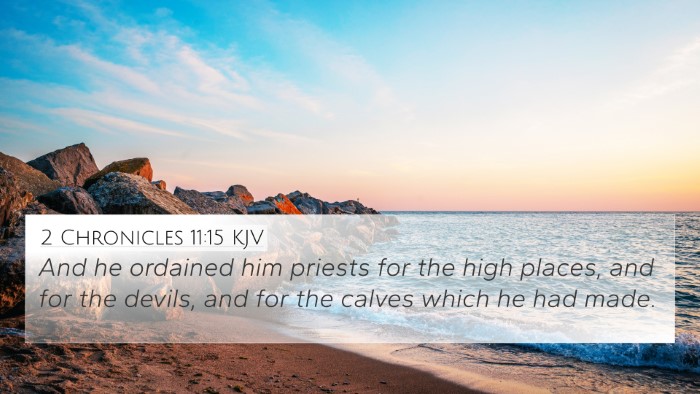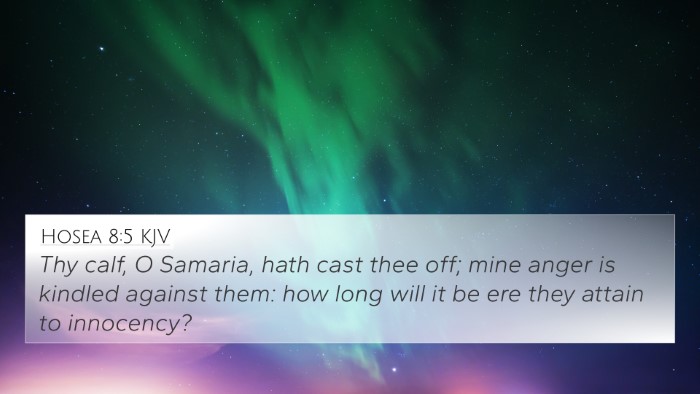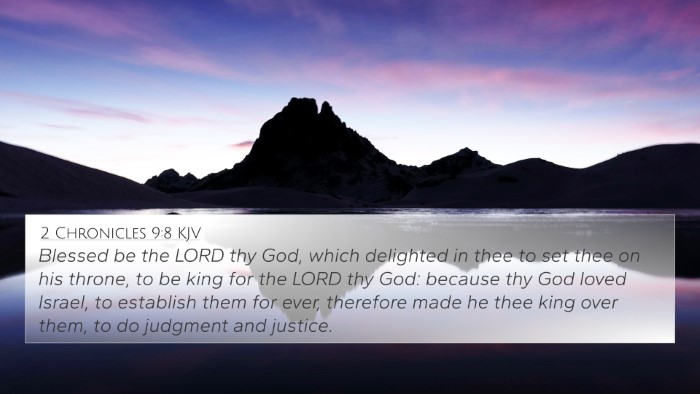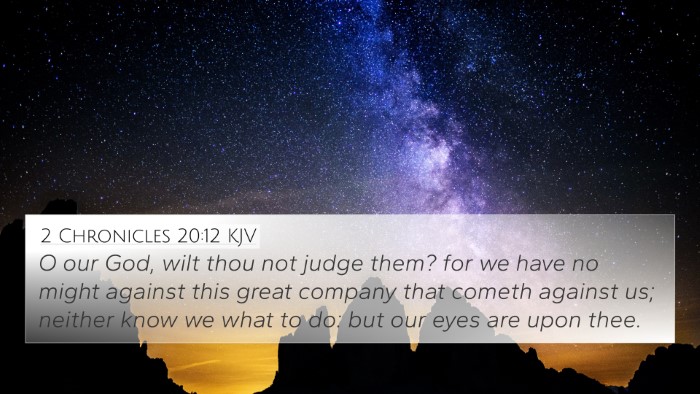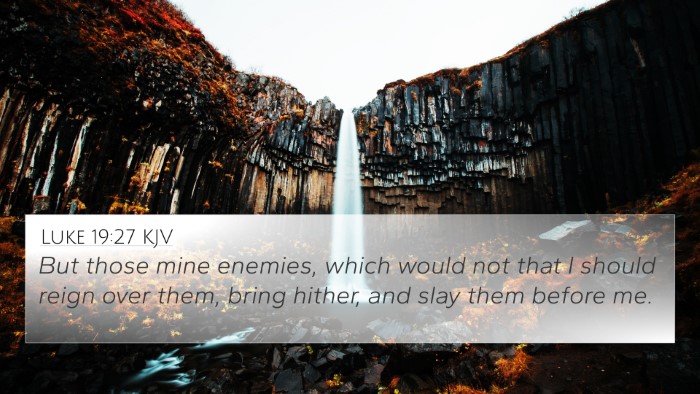Understanding 2 Chronicles 13:8
2 Chronicles 13:8 states: "And now you think to withstand the kingdom of the LORD in the hand of the sons of David; and ye be a great multitude, and there are with you golden calves, which Jeroboam made you for gods."
In this verse, we find King Abijah of Judah confronting the northern kingdom of Israel, led by King Jeroboam. This moment highlights the conflict between the two kingdoms and the underlying spiritual truths about fidelity to God and the consequences of idolatry.
Summary of Key Themes
- Authority of God's Kingdom: Abijah reminds Jeroboam that the true kingdom belongs to the LORD, as established through David. Abijah emphasizes the importance of divine authority and loyalty to God's ordained leaders.
- Rejection of Idolatry: The reference to the golden calves made by Jeroboam underscores the sin of idolatry. These idols were a direct violation of God's commandments and a serious offense against His holiness.
- Numerical Strength vs. Divine Favor: Although Jeroboam had a great multitude on his side, Abijah highlights that numbers do not guarantee success without God's favor. This invites reflection on spiritual versus worldly wisdom.
Insights from Public Domain Commentaries
Matthew Henry's Commentary
According to Matthew Henry, this verse serves as a poignant reminder of the futility of opposing God's will. Henry articulates that Abijah's speech reflects both a confidence rooted in God's covenant with David and a necessary warning against idolatry. He emphasizes that the presence of the golden calves was a blatant challenge to the authority of God, asserting that true worship is crucial in the pursuit of God's protection and blessing.
Albert Barnes' Notes
Albert Barnes highlights the political context of the verse, pointing out that Abijah's address was both a rallying cry for Judah and a pointed criticism of Israel's idolatrous practices. Barnes elucidates that the golden calves symbolize not just the rejection of Yahweh but also a far broader trend towards corruption and false worship that would plague the Israelite people. This connection reinforces the necessity for the people to recognize the legitimacy of God's chosen leaders and the significance of upright worship.
Adam Clarke's Commentary
In Adam Clarke's view, the assertion that Abijah makes regarding the multitude paints a vivid picture of the challenge he faces. Clarke notes that despite Jeroboam's numerical superiority, it is the presence of God's covenant that secures victory for Judah. This commentary stresses the balance of faith over perceived strength, showcasing how God's chosen instrument, even with fewer numbers, can triumph because of divine favor.
Bible Cross References
- 1 Kings 12:28-30: Discusses Jeroboam's establishment of idols and the implications for Israel.
- 1 Chronicles 28:4: Highlights God's choice of David and the significance of serving Him faithfully.
- 2 Kings 17:16: Mentions the idolatry of Israel and the consequences of turning from God.
- Deuteronomy 12:2-3: Provides God's instructions on dealing with idolatry and worship practices.
- 2 Chronicles 14:11: Shows God's assistance to those who trust in Him, regardless of their circumstances.
- Psalm 20:7: Affirms that true strength comes from God rather than numeric superiority.
- Hosea 8:4: Discusses the repercussions of appointing kings without God's approval.
Thematic Connections
The themes presented in 2 Chronicles 13:8 can be linked to numerous other verses throughout scripture that address similar issues of idolatry, God's sovereign authority, and the call to obedience. The narrative arc from the Old Testament to the New affirmatively shows that God continually seeks fidelity from His people, a principle confirmed across various texts.
Spiritual Lessons
- Fidelity to God: The importance of remaining faithful to the God who saves and leads.
- God's Sovereignty: Assurance that God's plans cannot be thwarted by human actions.
- Consequences of Idolatry: An important reminder that idolatrous practices have dire spiritual repercussions.
- Faith over Numbers: Trust in God is more significant than earthly power or numbers.
- Call to True Worship: A reminder to prioritize worship that aligns with God's will.
Conclusion
In summary, 2 Chronicles 13:8 invites reflection on the essential nature of loyalty to God amidst external challenges. It serves as a clarion call for spiritual vigilance against idolatry while emphasizing the everlasting nature of God's promises to His chosen leaders. Through cross-referencing this verse with others in scripture, we discover a rich tapestry of themes that underscore God's sovereignty and the importance of faithfulness in our walk with Him.




